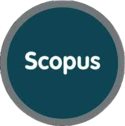Identifikasi Sikap Implikasi Sosial dari IPA, Ketertarikan Menambah Waktu Belajar IPA, dan Ketertarikan Berkarir Dibidang IPA Siswa SMP Se-Kabupaten Muaro Jambi
DOI:
https://doi.org/10.18592/tarbiyah.v7i2.2142Abstract
Tujuan dari penelitian ini untuk mengetahui bagaimana sikap siswa SMP terhadap IPA pada tiga indikator yang diadopsi dari TOSRA yaitu implikasi sosial dari IPA, ketertarikan menambah waktu belajar IPA, ketertarikan berkarir dibidang IPA. Sampel yang digunakan sebanyak 2815 siswa dari total keseluruhan. Jenis penelitian adalah penelitian survei. Instrumen yang digunakan berupa angket sikap. Analisis data pada penelitian ini menggunakan statistik deskriptif. Hasil penelitian yang diperoleh menunjukkan tiga dimensi sikap yang diukur tidak memiliki kaitan yang relevan, hal ini disebabkan oleh beberapa faktor yang berpengaruh di dalamnya. Faktor tersebut salah satunya adalah faktor guru pengampu IPA dan faktor perkembangan teknologi.References
Akinbobola, A. O. (2009). Enhancing Students’ Attitude Towards Nigerian Senior Secondary. Australian Journal of Teacher Education, 1-9.
Astuti, Rina., Sunarno, Widha., Sudarisman, Suciati. (2012). Pembelajaran Ipa Dengan Pendekatan Keterampilan Proses Sains Menggunakan Metode Eksperimen Bebas Termodifikasi Dan Eksperimen Terbimbing Ditinjau Dari Sikap Ilmiah Dan Motivasi Belajar Siswa. Jurnal Inkuiri. 51-54.
Bang, E., & Baker, D. R. (2013). Gender differences in Korean high school students’ science achievements. Mevlana International Journal of Education, 1.
Chopra, V., & Chabra, S. (2013). Digantar In India: A Case Study For Joyful Learning. Journal of Unschooling and Alternative Learning, 29-43.
CRUMB, C. R., MOORE, C., & WADA, A. R. (2010). Who Wants to Have a Career in Science or Math? Exploring Adolescents’ Future Aspirations by Gender and Race/Ethnicity. Science Education, 459-460.
Damanik, P., D. & Bukit. N. (2013). Analisis Kemampuan Berpikir Kritis dan Sikap Ilmiah Pada Pembelajaran Fisika Menggunakan Model Pembelajaran Inquiri Training (IT) dan Direct Instruction(DI). Jurnal Online Pendidikan Fisika. 19.
Dinatha, N., M. & Laksana, D., N., L. (2017). Kesulitan Belajar Siswa Dalam Mata Pelajaran IPA Terpadu. Jurnal Pendidikan Dasar Nusantara. 14.
Edginton, C., R., & Chen, P. (2008). Leisure as Transformation. Champaign, IL: Sagamore Publishing.
Fraser, B., J,. (1981). TOSRA: Test of Science-related Attitudes: Handbook: Australian Council for Educational Research
Godwin, B. A., & Okoronka, U. A. (2015). Attitude And Academic Performance Of Senior Secondary School Students In Physics In Nigeria. International Conference on Education,, 499-506.
Guido, R. M. (2013). Attitude and Motivation towards Learning Physics. International Journal of Engineering Research & Technology (IJERT), 2087.
Hazari, Z., Sonnert, G., Sadler, M., P., Shanahan, C., M. ( 2010). Connecting High School Physics Experiences, Outcome Expectations, Physics Identity, and Physics Career Choice: A Gender Study. Journal Of Research In Science Teaching. 983.
Hacieminoglu, E. (2016). Elementary School Students’ Attitude toward Science and Related Variables. International Journal of Environmental & Science Education, 36.
Hartinah, S., & Setiawan, T. (2013). Sikap Guru Taman Kanak-Kanak Terhadap Pembelajaran Matematika. Jurnal Ilmu Pendidikan, 51.
Putri. Physics Experiences, Outcome Expectations, Physics Identity, and Physics Career Choice: A Gender Study. Journal Of Research In Science Teaching. 983
Hofstein, A., & Naaman, R. M. (2011). High-School Students’ Attitudes toward and Interest in Learning Chemistry. international year of chemistry [attitude toward chemistry], 90-91.
Indriati. (2012). Meningkatkan Hasil Belajar IPA Konsep Cahaya Melalui Pembelajaran Science-Edutaiment Berbasis Media Animasi. Jurnal Pendidikan IPA Indonesia. JPPI. 192.
Kaya, H., & Boyuk, U., (2011). Attitude Towards Physics Lessons And Physical Experiments Of The High School Students. European J of Physics Education, 23.
Kena Ismail. (2016). Determination of Motivation of 5th Grade Students Living in Rural and Urban Environments towards Science Learning and their Attitudes towards Science-technology Course. Journal of Education and Training Studies. 155.
Kerlinger, F, N. (2014). Foundations Of Behavioural Research. Yogyakarta: Gadjah Mada University Press
Liaghatdar, M. J., Soltani, A., & Abedi, A. (2011). A Validity Study of Attitudes toward Science Scale among Iranian. International Education Studies, 36-46.
Nasr, A. R., & K, A. S. (2011). Attitude towards Biology and Its Effects on Student’s Achievement. International Journal of Biology, 100.
Nordin,. & Ling. (2011). Hubungan Sikap Tehadap Mata Pelajaran Sains Dengan Penguasaan Konsep Asas Sains Pelajaran Tingkat Dua. Journal of Science & Mathematics Educational. 98.
Owen, S. V., Toepperwein, M. A., Marshall, C. E., Lichtenstein, M. J., Blalock, C. L., Liu, Y., et al. (2008). Finding Pearls: Psychometric Reevaluation of the Simpson–Troost Attitude Questionnaire (STAQ). Science Education, 1007.
Putri, S., Candiasa, M., I., Marheani, N. (2014). Pengaruh Implementasi Metode Pembelajaran Inkuiri Terbimbing Berbasus Asesmen Kinerja Terhadap Hail Belajaran IPA Ditinjau dari Sikap Ilmiah Siswa Kelas VIII SMP Negeri 1 Tegalalang. E-Journal Program Pascasarjana Universitas Pendidikan Ganesha. 2.
Rensi., Sugiarti, L., R. (2010). Dukungan Sosial, Konsep Diri, Dan Prestasi Belajar Siswa SMP Kristen YSKI Semarang. Jurnal Psikologi. 149.
Sakariyau, A. O., Taiwo , M. O., & Ajagbe, O. W. (2016). An Investigation on Secondary School Students’ Attitude. Journal of Education and Practice, 125.
Sitotaw, B., & Tadele, K. (2016). Students attitudes towards physics in primary and secondary schools of Dire Dawa City administration, Ethiopia. World Journal of Educational Research and Reviews, 1-8.
PELL, A. W. (1985). Enjoyment and Attainment in Secondary School Physics. British Educational Research Journal, 130.
Turkmen, L. (2013). In-service Turkish elementary and science teachers’ attitudes. Science Education International, 438-442.
Veloo, A., Nor, R., & Khalid, R. (2015). Attitude towards Physics and Additional Mathematics Achievement. International Education Studies, 35-37.
Wenno, I., H. (2010). Pengembangan Model Modul Ipa Berbasis Problem Solving Method Berdasarkan Karakteristik Siswa Dalam Pembelajaran di SMP/MTS. Cakrawala Pendidikan. 176.
Widiadnyana I W., Sadia I W. dan Suastra I W. (2014). Pengaruh Model Discovery learning Terhadap Pemahaman Konsep IPA dan Sikap Ilmiah Siswa SMP Tahun Pembelajaran 2013/2014. E-journal program pascasarjana Universitas Pendidikan Ganesha Program Studi IPA, 2-3.
Widoyoko, E. P., (2016). Teknik Penyusunan Instrumen Penelitian. Yogyakarta : Pustaka Pelajar.
Zanaton., Halim, L., Osman, K. (2006). Sikap Terhadap Sains dalam Kalangan Pelajar Sains eli Peringkat Menengah dan Matrikulasi. PertanikaJ. Soc. Sci. & Hum, 143.
Downloads
Published
How to Cite
Issue
Section
License
Authors retain copyright and grant the journal right of first publication with the work simultaneously licensed under a Creative Commons Attribution 4.0 International License that allows others to share the work with an acknowledgment of the work's authorship and initial publication in this journal.




